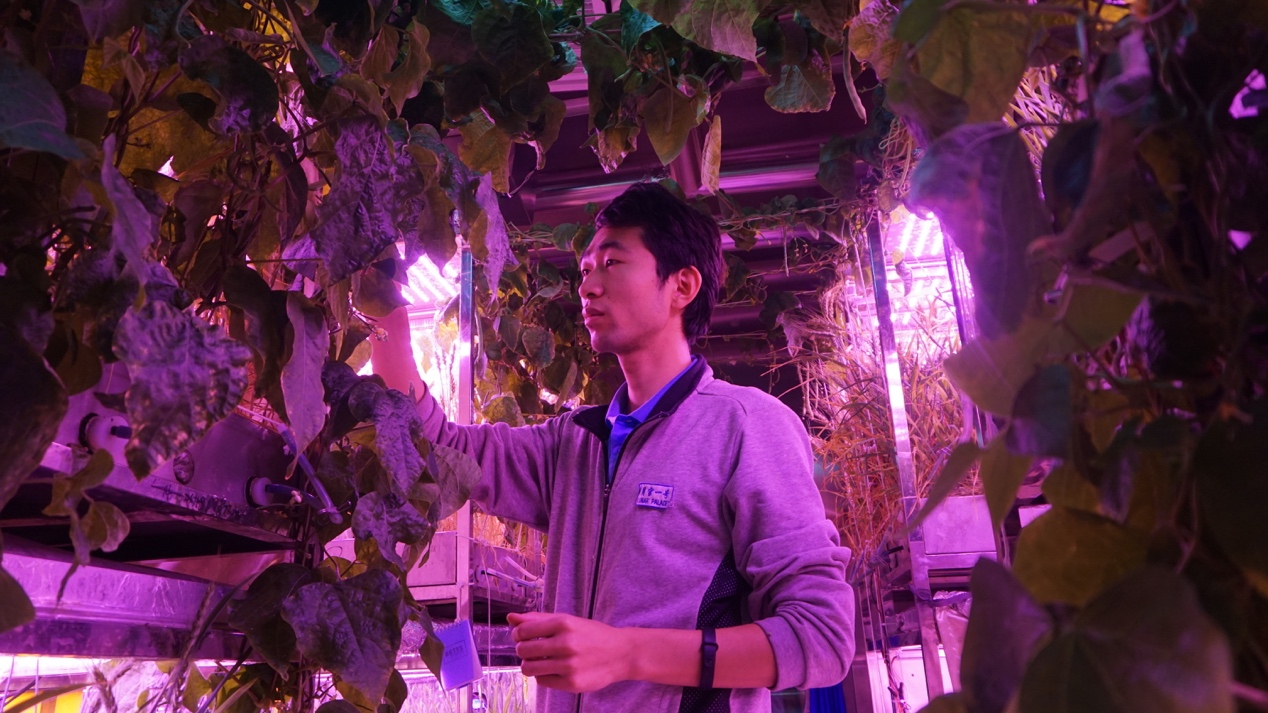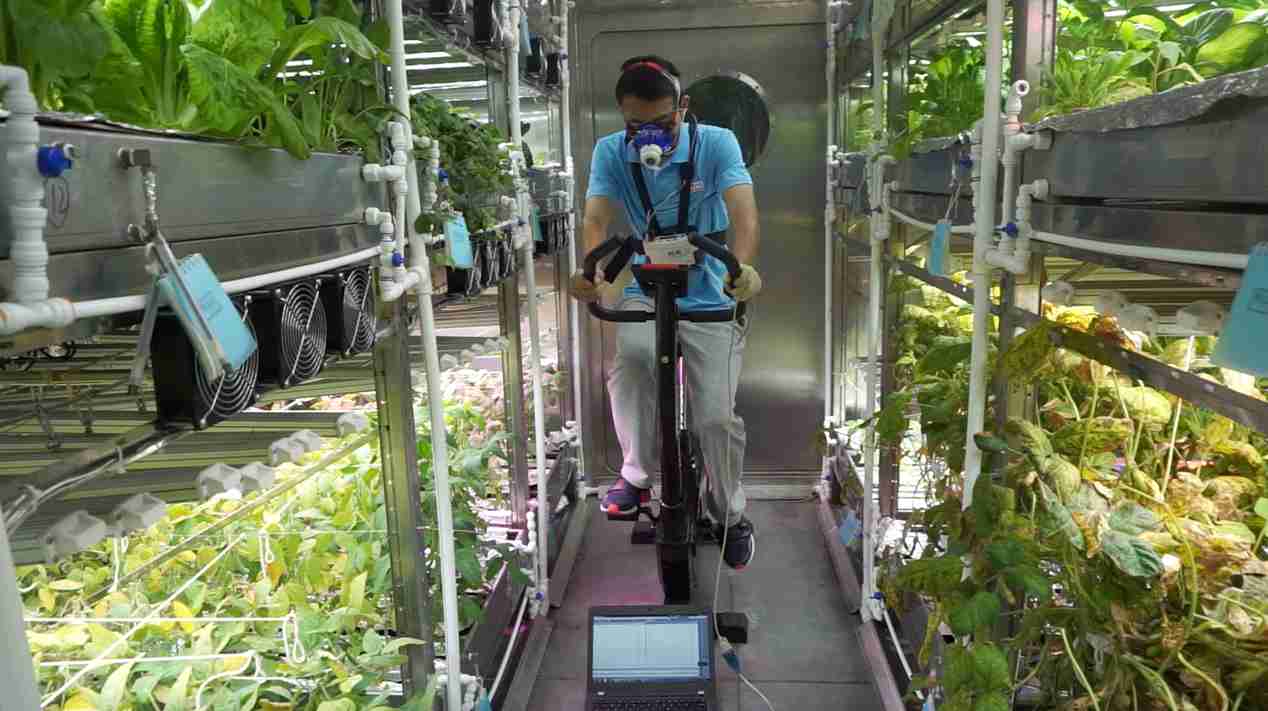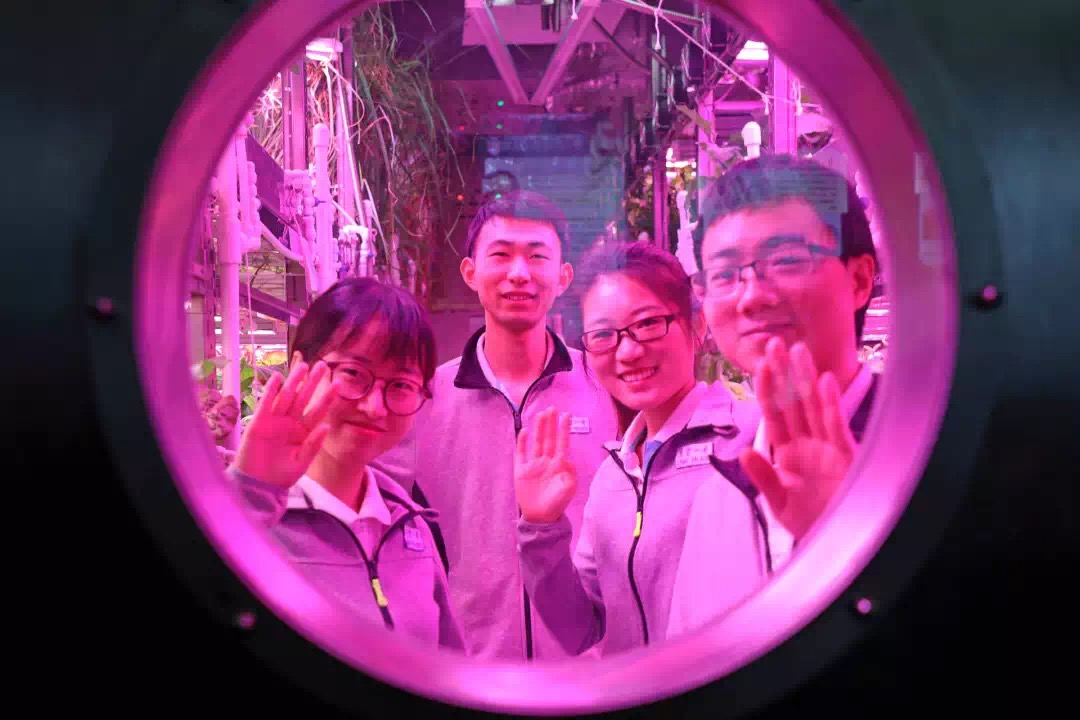
Technology
14:58, 02-May-2019
What’s it like to work in isolated space for 200 days?
By Zhao Yunfei, Meng Mingwei
02:26

Yi Zhihao, 28, still sometimes gets emotional when thinking about his volunteering experience living in a self-contained lab in early 2018.
"It's incredible, I really did not expect to be able to make it for 200 days," Yi said.
His group, along with another one, broke a world record by working rotations at a bio-regenerative life support system in Beihang University in Beijing for a combined 370 days.
Yuegong-1 is a simulated space lab, designed to observe how animals, plants, and micro-organisms can co-exist in a lunar environment. The volunteers planted crops and managed waste according to a recycling system. Only two percent of the supplies came from outside.
For Yi and his team, everything took place in the 150-square-meter lab, from making traditional mooncakes to throwing a birthday party.

The physical and mental states of volunteers were closely watched. /Photo via Beihang University
The physical and mental states of volunteers were closely watched. /Photo via Beihang University
Yi specialized in agriculture. His education background qualified him for this interdisciplinary project.
"I never thought that my major somehow correlated with a space program. I wanted to do something for my country, that's why I was strongly motivated," Yi said.
China plans to send astronauts to the Moon by 2036. The drills in Yuegong-1 provided the scientific support needed for such a mission.
"The lunar base project gives us a better understanding of what it's like to live and conduct explorations on the Moon over a longer period of time. We'll also need this kind of system if we go to Mars," said Wang Jun from the Chinese Academy of Engineering.
Thirty student researchers committed to the Yuegong-1 project, as more and more young people are interested in China's space industry.

A group of four volunteers lived in a self-contained cabin for 200 days in Beijing. /Photo via Beihang University
A group of four volunteers lived in a self-contained cabin for 200 days in Beijing. /Photo via Beihang University
"Young people dream big, and they are ambitious. They are not afraid of making mistakes. I have confidence in China's space exploration career," said Yuegong-1's chief designer Liu Hong.
"If we want to reach the top globally, we must have a global vision. We should conduct more international projects to broaden our horizons," Yi stated.
More has to be done, as the space lab program should anticipate many more of the conditions that outer space has to offer. The Yuegong-1 team was awarded last month a May Fourth outstanding group medal by the Central Committee of the Communist Youth League of China.

SITEMAP
Copyright © 2018 CGTN. Beijing ICP prepared NO.16065310-3
Copyright © 2018 CGTN. Beijing ICP prepared NO.16065310-3